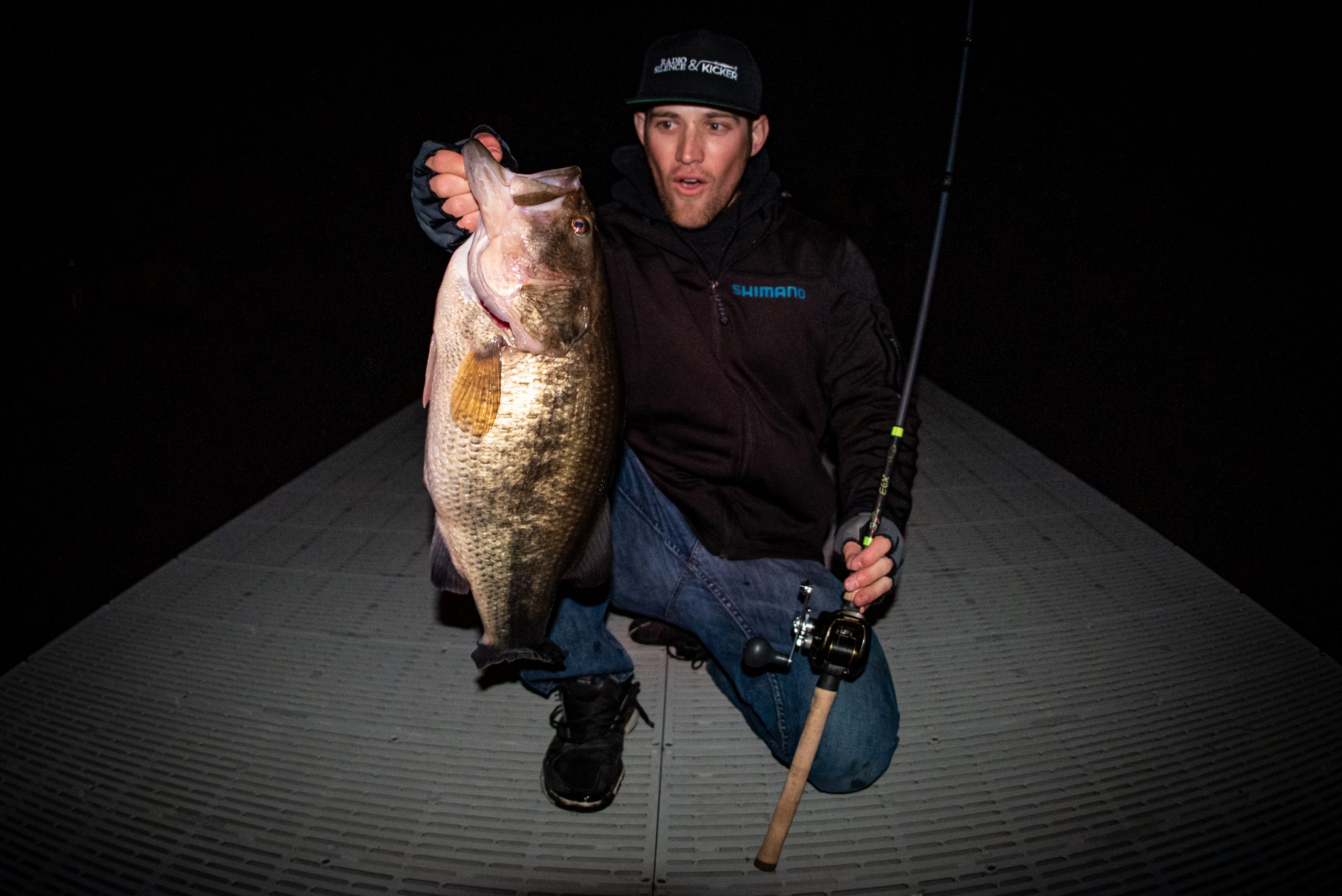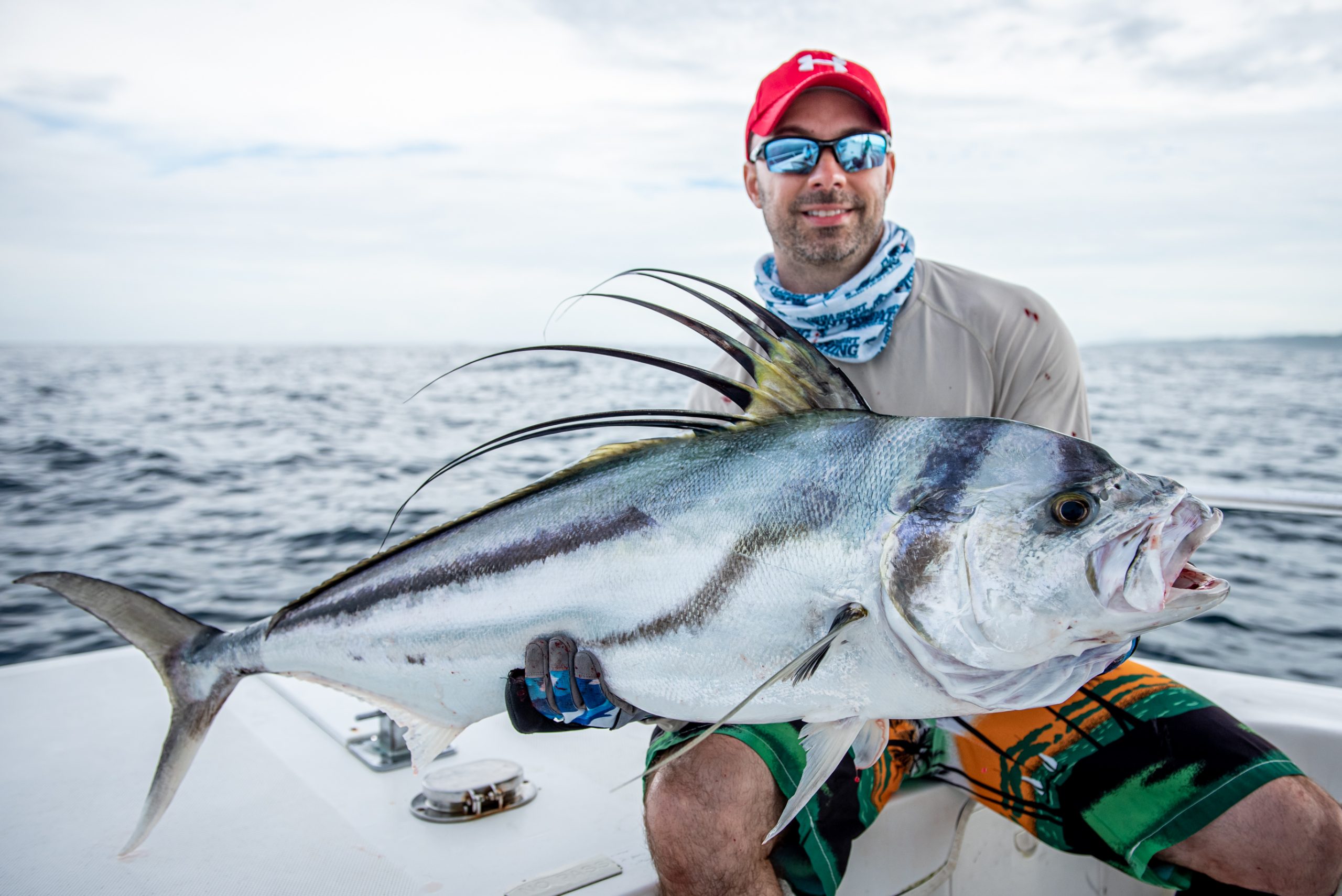
Just Say Yes
In the summer of 2021 I met a friend named Bob Daly. Mr. Daly is a world traveler and an absolute fishing fanatic. I spoke of my struggles to find friends with serious interest in international popping and jigging adventures to which he replied with a phrase I will never forget. Bob said “everyone wants to go until it’s time to pay”.
Last summer, my friend Ray Orosco sent me an email asking if I would be interested in fishing with a French operation located in an archipelago in Panama. The location appeared to be more remote than Pedasi, Panama, where Ray and I had just wrapped up a trip. I hardly spent any time researching the operation and instead just trusted Ray’s judgement and told him yes and paid the deposit.
On June 1st, 2022, I arrived at the Tocumen International Airport where Charles and Gireg from Panama-fishing.fr were waiting to pick me up then drive me to my hotel. During the drive Charles said that Ray and I would be the second and third Americans ever to visit his lodge in the more than ten years that he has been operating in Panama. I was surprised by this. Once we arrived at the hotel Ray met us in the lobby for a briefing of what the next day of traveling to the lodge would look like.
The next morning Ray called my room and asked if I had heard from Charles. I said that I hadn’t and Ray said that we could not travel to the lodge today because of wind and rough seas. I said “I hope you are joking” and he explained that he was not. It was a disappointment realizing that we would probably lose one day of fishing due to the cancellation. Charles told us this was the first time ever he had to cancel a passage to the lodge due to weather. We spent the day in the hotel installing hooks and split rings on lures, tying leaders, searching for exotic fruits, and eating Cuban and amazing Peruvian food in Panama City.
The next morning we were told by Charles that we would be making our way to the lodge, but that the ride would not be perfect. Charles, Gireg, and Franck picked us up from the hotel and drove us to the marina where we boarded their 48’ catamaran. The wind was greater than 15 knots and the seas were definitely not perfect. The passage from Panama City to Archipiélago de las Perlas took us more than five hours in the cat. Upon arrival at the lodge Ray and I rigged our rods and prepared our gear for the next several days of popping and jigging.



Day 1:
Franck was our captain for the first day and we told him “cubera, cubera, cubera!” as that was all we wanted to focus on. Within the first few casts Ray had a big cubera boil on his popper, but the hooks did not meet flesh. After seeing that I had high hopes for the day and thought to myself “oh, so this is how it’s going to be”, realizing the fishing was probably going to be insane. Ray and I focused on throwing large wooden poppers based on what Charles had told us about poppers working the best for cubera this time of year. We found our poppers being assaulted by sierra mackerel, yellowfin tuna, and jacks. The cubera remained true to its elusive reputation for much of the day.


I had a fish blow up on my bright green popper and saw the back half of the fish during the attack, which was brown in color. Immediately I knew there was a great chance the assailant was a cubera. Because of this realization I put my body into kill mode and started pulling on this fish as best I could to turn its head and prevent the fish from diving back into its cave and possibly busting me off. My tactics worked and within a few minutes a brownish-orangish creature became visible as it ascended in the water column at which point I realized it was a cubera. I was ecstatic, but I saw that I only had one barbless treble in the corner of the fish’s mouth. Luckily, Franck secured the fish and lifted it into the boat. It was a great feeling to finally catch this species and see one up close in person; I loved the shape, color, vampire-like teeth, and overall appearance of the creature. After a quick photo I tossed the beautiful cubera head first back into the sea so that it may continue to terrorize its territory.

In the afternoon I watched as a fish ate Ray’s popper moving from left to right during the attack. The fish looked good sized, and soon began to rip drag off of his reel making the “zzzzzzz” sound. The fish kept ripping drag and I could tell by the bend in Ray’s rod that this fish was proper, but it did not look huge when I watched it attack. About 10 minutes later with very heavy drag Ray was still fighting the fish and said “I need to hand the rod off”. I thought he was joking as he is a fitness guy and has fought many large fish in his past, so I asked “are you serious?”. He responded that he was serious and I could tell he was struggling at that point. He handed off the rod to me, at which point I realized something was not right. Whatever was on the end of the line was stronger and heavier than anything I had ever pulled on. At some point we realized whatever fish initially had eaten Ray’s popper was later eaten by a bull shark, which was now attached to his line. Within a few minutes I said I needed help and handed the rod back to Ray. We took turns and even had Franck pull on this beast to share the struggle. After about an hour we had the stupid shark within viewing distance directly beneath the boat, but could not lift it any further due to the sheer weight of the creature and the resistance caused by the current. With much hesitation Ray made the decision to stop screwing around and take a lighter to the line to sever the connection with the monster. It sucked being so close to victory, while at the same time feeling helpless. Captain Franck estimated the bull shark to be greater than 300 kg. Massive!
Ray ended up having two more shark attacks that afternoon, which was frustrating, and we both hoped to have no more shark encounters the rest of the trip.
At dinner that evening, Charles mentioned that he has been diving while people are throwing poppers above. He said on the first cast one cubera will come up to investigate. On the second cast there will be five cuberas investigating, and on the third cast they are all gone. This speaks to the intelligence and elusiveness of this mystical snapper species.
Day 2:
The next day Gireg was our captain, and we also told him that we were in pursuit of the elusive cubera. The day started with strong gusts of wind, of which we were told the fish did not like, and certainly we did not either as it made keeping our poppers in the water difficult. We drifted through cubera zones where Gireg would call out “cubera” or “big cubera” as he saw them appear on the electronics. Ray and I did not have any cubera attacks or follows and Gireg just shook his head and said “they’re sleeping, sorry”. We caught a few jacks and moved on.
In the afternoon we were fishing in 4 meters of water for mixed species. I was throwing a small 150 mm popper on the lightest rod that I brought. I watched a brown mass side-swipe my popper while its back came completely out of the water. I was terrified of what I saw and could not determine if what I had just witnessed was a shark or a cubera. I set the hook and immediately this brown being made a massive run and took a bunch of line off of my Stella 6K. Being in shallow water and fishing the light setup all of a sudden seemed like a terrible idea. I survived the first run surprisingly, and started gaining line back rather quickly. I remember thinking “I might actually have a chance” as the fish seemed done and was coming in fairly easily. I was wrong. I would guess the fish was less than 30 feet away when it started its second run that ended with a rock making contact with my leader ending the fight immediately. It was a classic case of being undergunnned and it was definitely a big cubera. What a scary realization that big cubera also patrol the shallows.

Near the end of the day the wind came to almost a complete stop. The conditions were lake-like honestly. Gireg said that we would try for roosters and suggested we throw small poppers. I picked up my light setup again and started casting. Soon I watched as a rooster was following directly behind my popper. I increased the speed of my lure and within a few meters the fish exploded while engulfing my Japanese popper. I set the hook and the fish absolutely took off with an incredible demonstration of speed and power. Understanding the way roosters fight and our surroundings, Gireg told me “take your time” as there was no risk of the fish breaking me off in rocks or becoming shark bait. I took my time and gained line when I could, and let the fish take line during several long runs that had me saying “wow!” as I was truly impressed by the fish’s fight. After 15-20 minutes and several laps around the boat the fish had become exhausted and Gireg brought it into the boat, removed the popper from its mouth, and handed me the fish for a quick picture before the release. Catching that rooster was a great way to end a tough day and really proves how it only takes one bite to change the course of a day.

Day 3:
Charles captained the boat and we headed out into a rainy and windy mess for our continued search of the cubera. Ray and I were taken to many prime cubera spots only to find inactive fish and be harassed by needle fish attacking our fishing lines and causing much frustration. I had a rooster follow my popper frantically for tens of meters only to turn away. The fishing was extraordinarily tough. We used approximately 140 liters of gasoline that day and did not have much to show for it. All I wanted to do was flip the fish off.

Day 4:
It was Franck’s turn again in the captain’s rotation. We started the morning at a shallow flat where Ray was able to get a nice rooster and a mullet snapper to eat topwater. Later in the day, I had a lit-up dorado follow my popper all the way back to the boat, but it never ate. Ray hooked into a big sailfish on a stickbait with cubera drag and had the leader fail during a powerful surge. Overall, it was another difficult day with Franck saying “sorry” many times as he started the engine in preparation for moving to other spots.

Day 5:
Gireg was the captain on our final day of fishing. We left the lodge in the morning and during the couple of minutes on the drive to the marina the rain started. Soon after getting into the boat and heading to more cubera zones we were completely soaked. It was also another intense day of wind and storms. The morning was spent fishing tight to small islands for cubera using poppers. This style of fishing reminded me of calico bass fishing, but using gear usually intended for targeting GT. We had no follows and no attacks. When the fish were not cooperating it really made me realize how much it sucks throwing big poppers on a PE10-rated rod with a Stella 18K; it is hard work.
Gireg decided to make a move and let us give jigging a go, because it was obvious the fish were not keen on eating our poppers. The jigging location was in about 40 meters of water and the sounder was lit up like a Christmas tree, indicating the presence of life below. Gireg said there were almaco jacks underneath the smaller fish closer to the surface, but the almacos would not attack our jigs. Instead, we were bombarded with bonito, jacks, and sierras. Eventually, we had enough and moved on to pop for cubera.

In the afternoon the wind seemed to switch on and off like a child playing with a light switch for the very first time. We made several drifts and had a few cubera follows, but no attacks occurred. Those fish are downright frustrating.
Luckily, Charles was able to fit us in for five days of fishing, even with our canceled first day, because our flights did not leave until the afternoon the day after our fifth day of fishing. It was great he was willing to be flexible like that. The next morning Gireg and Franck shuttled us back to Panama City in a center console boat with an adequate amount of time to get to the airport.

We were dealt a crappy hand from mother nature. The wind and the rain definitely changed the behavior of the fish and made fishing abnormally difficult. I know Gireg, Franck, and Charles were also frustrated by how uncooperative the fish were during the week, but ultimately none of us could control the weather or the fish. The archipelago was an amazing location and I cannot imagine what fishing would be like on a good day or week. The remoteness of the archipelago and the limited fishing pressure excite me for potential in future missions to this location and I hope to return and defeat a giant cubera.
Sometimes you find a pot of gold and sometimes mother nature slaps you across the face with a rotting dead fish, but part of the fun is the mystery of the unknown. We’ll be back and hopefully she will be more kind. Thank you to Charles, Gireg, and Franck for having no fear of burning outrageously priced gasoline to help us seek out the legendary cubera in your waters, and for working so very hard to put us in front of the fish. Thank you Sara for creating the most exquisite dinners that I have ever eaten. I loved your food! Lastly, thank you Ray for the invite, for answering my popping and jigging questions via email and phone during the past year, and for your ABC (always be casting) mentality while on the boat. I am grateful to be your friend and look forward to seeing you on the next adventure.
Popping and jigging is what I want to do more than any other style of fishing. Watching aggressive fish blow up on poppers or completely stop your jig as it is racing erratically towards the surface is simply raw and savage. There is nothing else like it. I believe this to be the most hardcore form of fishing known to man. Because of this I am willing to put more on the line to experience such pleasures. Whether it’s larger operation fees, longer flights, being covered in bug bites, aching muscles and tendons, or endless sweating, it is all worth it to me. I find it truly fascinating that many fisherman don’t seem interested in having experiences like this. Sometimes the best thing to do is just say “yes”.
This is Jeff Rodgers,
OVER & OUT



